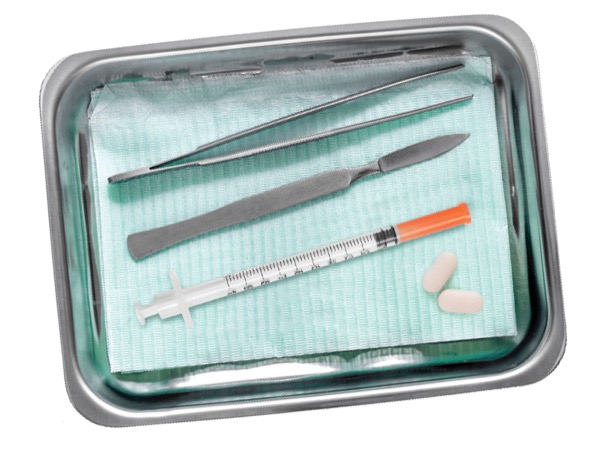Surgical procedures performed shortly after a patient’s recovery from COVID-19 are not associated with increased risks if the individuals are fully vaccinated against SARS-CoV-2, according to a recent study.
The findings may allow hospitals to shorten the time before surgery following COVID-19 infection among vaccinated patients, thus avoiding some delays and addressing pandemic-related surgical backlogs (Ann Surg 2022 Jul 15. doi:10.1097/SLA.0000000000005597).
“These findings reiterate the importance of COVID-19 vaccination for patients considering surgery,” said Bradley Cohn, MD, an anesthesiologist and the chair of perioperative medicine for the Permanente Medical Group, in Oakland, Calif. “This study also provides care teams with additional information they can use to decide on the optimal timing and approach to surgical care to ensure the best possible outcomes for their patients.”
Current guidelines recommend deferring elective surgery for at least seven weeks following COVID-19 positivity, but the studies on which guidelines were based took place when vaccination prevalence was still low (Anaesthesia 2021;76[7]:940-946).
To assess how COVID-19 vaccination status may modify risk associated with surgery after COVID-19 infection, the study authors conducted a retrospective cohort study using data from patients who underwent scheduled surgery at a large, integrated health system from Jan. 1, 2018 to Feb. 28, 2022.
A total of 228,913 patients, of whom 4.8% had COVID-19 before or after surgery, were categorized into five groups, according to the time between COVID-19 positivity and surgery date:
- Early post–COVID-19: Surgery occurred up to four weeks after infection (n=765).
- Mid–post–COVID-19: Surgery occurred four to eight weeks after infection (n=961).
- Late post–COVID-19: Surgery occurred more than eight weeks after infection (n=9,170).
- Pre–COVID-19: Surgery occurred at least 30 days before infection (n=19,420).
- No COVID-19: Patients had no COVID-19 test positivity during the study period (n=198,597).
Among patients who were fully vaccinated against COVID-19, no significant difference was found in the adjusted rate of perioperative complications between early post–COVID-19 (relative risk [RR], 0.66; P=1.00), mid–post–COVID-19 (RR, 0.74; P=1.00), and late post–COVID-19 (RR, 1.00; P=0.91) groups compared with the pre–COVID-19 group.
Unvaccinated patients in the early post–COVID-19 group had a higher rate of complications than those in the pre–COVID-19 group (RR, 1.55; P=0.05), but the difference did not appear in the mid– or late post–COVID-19 groups.
Patients not fully vaccinated at the time of COVID-19 infection who were in the early post–COVID-19 group and received general anesthesia had significantly a higher rate of perioperative complications than the pre–COVID-19 group receiving general anesthesia.
Risk for perioperative complications among patients who were not fully vaccinated at the time of COVID-19 infection and did not receive general anesthesia was not increased compared with fully vaccinated groups.
“Timely access to surgical care is essential for patients,” Dr. Cohn commented. “As hospitals and health systems continue to expand services to accommodate patients who have deferred surgical procedures due to the pandemic, these data are a significant step toward establishing that fully vaccinated patients with a recent mild COVID-19 infection might safely undergo a scheduled surgery without the need for further delay, once their symptoms have resolved.”
However, Dr. Cohn noted that more studies are needed to clarify whether these findings hold true as the COVID-19 pandemic continues.
“Given the ongoing changes we are seeing in viral evolution, newer treatments and waning immunity, it will be important to continue actively monitoring surgical practices and outcomes as well as unique considerations for special patient populations, including obstetric and pediatric patients.”


